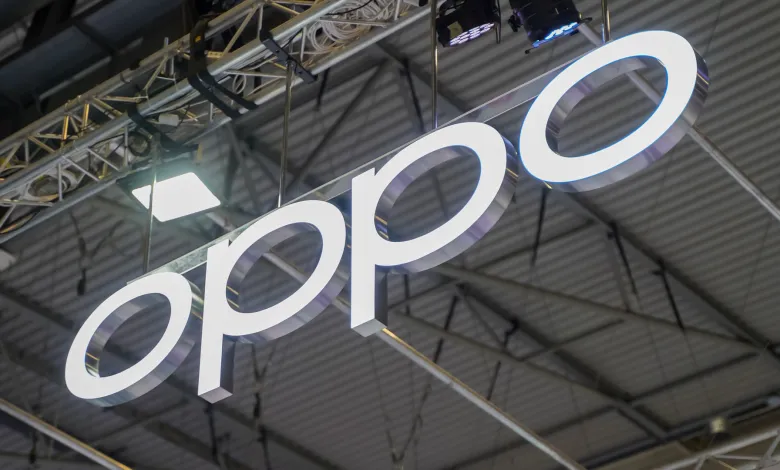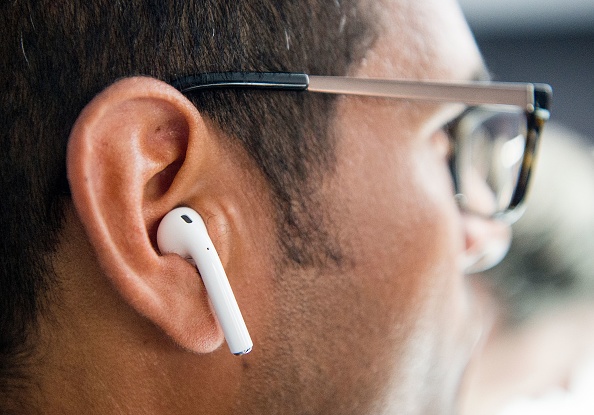
The much-awaited Galaxy M15 5G from Samsung has fi...
news-extra-space

 Image credit- canada today[/caption]
When it removed the headphone jack from its iPhone 7 series, Apple set the trend. Other Android phone manufacturers first made fun of the decision, but Samsung and Google Pixel went through with it.
Apple AirPods (Image courtesy of Josh Edlson/AFP via Getty Images)
On September 7, 2016, Apple wireless AirPods were put through their paces at a media event held at Bill Graham Civic Auditorium in San Francisco, California.
Most audiophiles are let down by Bluetooth audio, though, as it sacrifices lossless audio quality. Oppo is aiming to alter that this time.
According to the Chinese phone manufacturer, its new MariSilicon Y chip offers 50% more bandwidth than current Bluetooth chips.
This specialised microprocessor can handle up to 12 Mbps of bandwidth, to be exact. For a Bluetooth connection, that is extremely outstanding. Oppo claims that this allows for 24-bit, lossless audio at up to 192 kHz.
No other processor is currently able to handle this, according to Google's research. Oppo appears to be levelling the playing field, then.
Additionally, see Huawei and Oppo Sign Cross-Licensing Agreement, Covering Cellular Standard Crucial 5G Patents.
[caption id="attachment_72394" align="aligncenter" width="594"]
Image credit- canada today[/caption]
When it removed the headphone jack from its iPhone 7 series, Apple set the trend. Other Android phone manufacturers first made fun of the decision, but Samsung and Google Pixel went through with it.
Apple AirPods (Image courtesy of Josh Edlson/AFP via Getty Images)
On September 7, 2016, Apple wireless AirPods were put through their paces at a media event held at Bill Graham Civic Auditorium in San Francisco, California.
Most audiophiles are let down by Bluetooth audio, though, as it sacrifices lossless audio quality. Oppo is aiming to alter that this time.
According to the Chinese phone manufacturer, its new MariSilicon Y chip offers 50% more bandwidth than current Bluetooth chips.
This specialised microprocessor can handle up to 12 Mbps of bandwidth, to be exact. For a Bluetooth connection, that is extremely outstanding. Oppo claims that this allows for 24-bit, lossless audio at up to 192 kHz.
No other processor is currently able to handle this, according to Google's research. Oppo appears to be levelling the playing field, then.
Additionally, see Huawei and Oppo Sign Cross-Licensing Agreement, Covering Cellular Standard Crucial 5G Patents.
[caption id="attachment_72394" align="aligncenter" width="594"] Image credit- Techtimes[/caption]
How the Bluetooth Chip from MariSilicon Y Operates
A recent revelation by Android Police claims that a proprietary codec is used by the custom chip. Additionally, it has a potent NPU built in. Together, these two produce outstanding audio quality without the use of wires.
The URLC, or new ultra-resolution lossless coder, is the codec that the MariSilicon Y supports. The chip may also add spatial audio as a result of this.
Even though the bespoke chip can perform all of these tasks, its size is less. Therefore, earbuds that support lossless music in the future won't be larger. They might even be smaller than the available options instead.
Last year, Spotify also made a commitment to deliver Hi-Fi quality. It hasn't, though, seen the light of day yet. Perhaps the Swedish streamer will accelerate its distribution in response to this new Bluetooth chip.
Image credit- Techtimes[/caption]
How the Bluetooth Chip from MariSilicon Y Operates
A recent revelation by Android Police claims that a proprietary codec is used by the custom chip. Additionally, it has a potent NPU built in. Together, these two produce outstanding audio quality without the use of wires.
The URLC, or new ultra-resolution lossless coder, is the codec that the MariSilicon Y supports. The chip may also add spatial audio as a result of this.
Even though the bespoke chip can perform all of these tasks, its size is less. Therefore, earbuds that support lossless music in the future won't be larger. They might even be smaller than the available options instead.
Last year, Spotify also made a commitment to deliver Hi-Fi quality. It hasn't, though, seen the light of day yet. Perhaps the Swedish streamer will accelerate its distribution in response to this new Bluetooth chip.
Leave a Reply






